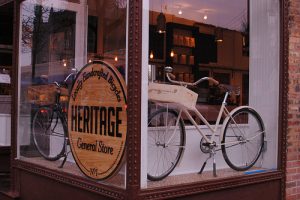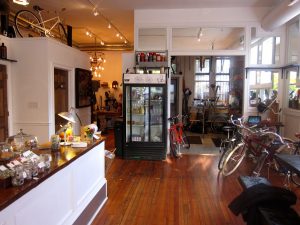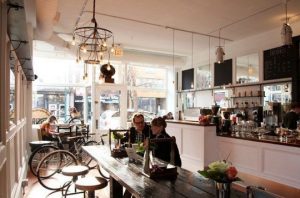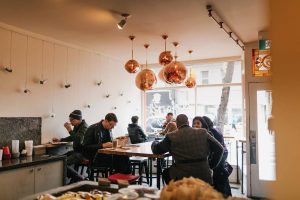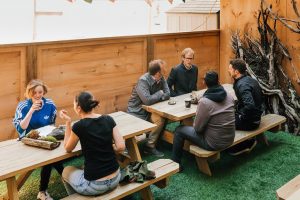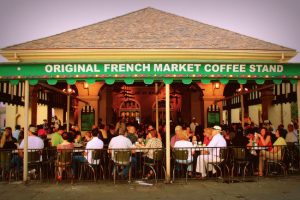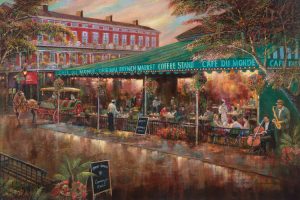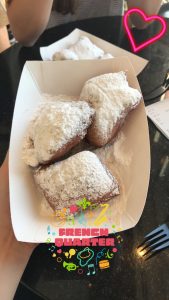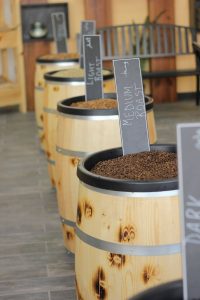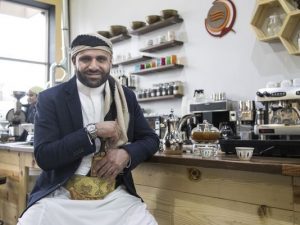Have you ever heard of bicycles and coffee going hand in hand? I sure haven’t, and I definitely don’t think this is a common pairing. A business that sells bicycles be known for its coffee too? Why yes, that seems odd to me. I love riding my bike around my neighborhood in the summer, and I’m an avid coffee drinker, but I never thought to put two and two together. Yet, Heritage Bicycles General Store masters the unusual. This original bike café of Chicago’s affluent North Side is an experience that pairs an exposed bike shop of vintage-inspired bicycles with the Heritage brand of coffee roasts. Michael Salvatore, the owner of Heritage General Store, claims that bikes and coffee are universal. Bicycles and coffee are quite the combination, because no matter where in the world you are, both bikes and coffee will always be present. The store builds and sells their own locally handcrafted line of Heritage bicycles, promoting eco-friendly transportation. In this same open, welcoming atmosphere is where customers can order a coffee from a vast variety of options. From your new home office, as most coffee shops have become absorbed by the whirlwind that is work, you can watch the bike mechanics put on a show in the garage while you sip on your coffee. This unique environment is fueled by passion and care for the unique variety of creations that it serves.
All entrepreneurs need to create a revenue model for their business. The revenue model identifies how a company will earn income and make profits. Obviously, this is a key factor that is crucial to the success of any business. It’s important for an entrepreneur to lay out the revenue model in their business model before actually opening any type of business. Even though I think it’s a bizarre pairing, selling both bicycles and coffee offers two different steady profit streams that are laid out in the revenue model. The Heritage General Store runs on the unit sales revenue model, measuring the amount of revenue generated by the individual number of cups of coffee and the individual number of bicycles sold. This is the unit sales of physical goods. The idea behind the unit sales model, which is a common model among retail businesses like coffee shops, is that revenue is earned when a product is sold directly to the end customer. That said, there are countless revenue models that keep a business floating and allow it to flourish. The choice is up to you as an entrepreneur to decide which revenue model you want to run your business with. As a way to keep loyal customers coming back for more and to create a constant flow of revenue, the general store will even bike fix a flat while a customer waits, and they will offer the customer a cup of coffee for free. They have mastered the art of high customer satisfaction. Heritage Bicycles General Store is a café that brings the unlikely pair of bicycles and coffee together in a way that generates revenue through a creative atmosphere.

